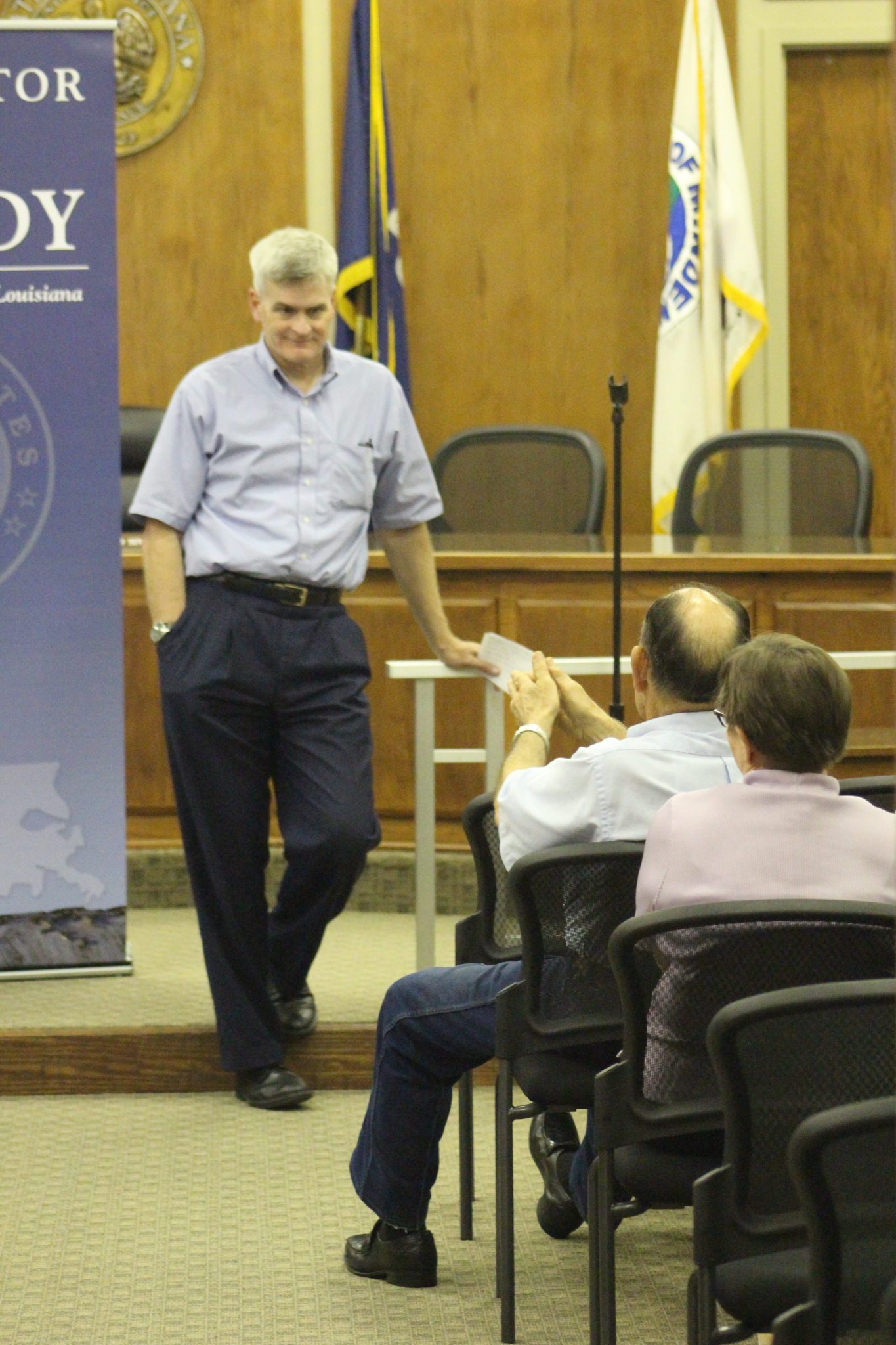254
MICHELLE BATES
[email protected]
U.S. Sen. Bill Cassidy covered an array of topics affecting the state and the nation in a town hall meeting in Minden Monday.
Medicare, Social Security and the U.S. Supreme Court topped the topics of di

U.S. Sen. Bill Cassidy listens as retired judge Ralph Yarborough talks about issues with the U.S. Supreme Court and the appointment of justices. Cassidy was in Minden Monday afternoon to conduct a town hall meeting to let the people know what's going on at the state and national level. He also listened to concerns and fielded questions. Bruce Franklin/Press-Herald
Sen.Cassidy hosts town hall meeting
previous post

